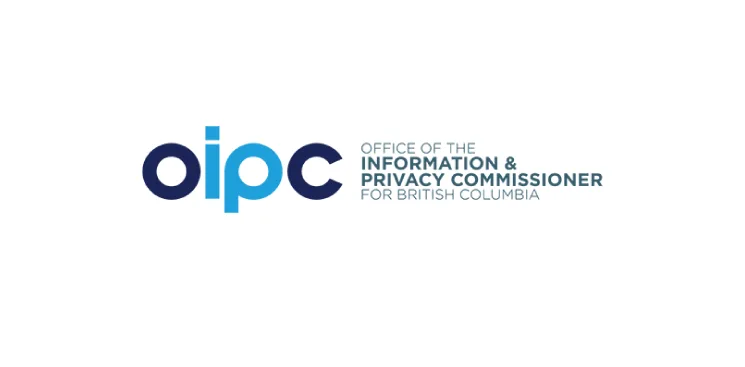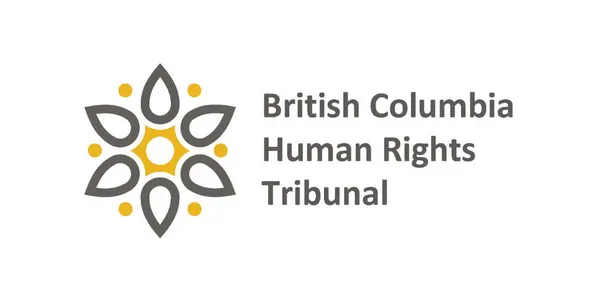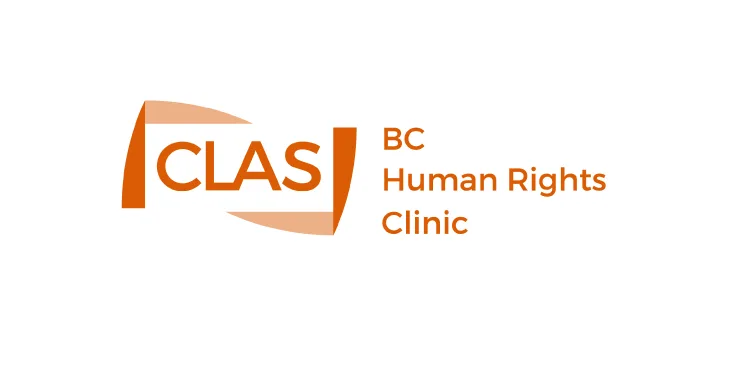
When I’m being considered for a job, is an employer allowed to search my Facebook profile without telling me?
It’s natural that a landlord would want to know as much as possible about a prospective tenant before granting a lease. The same goes for an employer when considering a job candidate. But they don’t have free rein to gather any information about you they want. Learn about BC’s privacy laws and the protection of your personal information.
What you should know
There are many reasons an organization may want to collect your personal information. Maybe a potential employer wants to confirm your qualifications. Or maybe a non-profit wants to know more about you before taking you on as a volunteer.
In BC, the privacy law that applies to private organizations — like businesses and non-profits — is called the Personal Information Protection Act. This law regulates the collection, use, and disclosure of personal information.
Personal information is information that, on its own or combined with other data, can identify you as an individual. Some examples include your date of birth, an image of you, or your job title. Personal information doesn’t include your workplace contact information.
“Last week I sent a rental application in response to an ad I saw. The landlord asked if I’d agree to share a bit more information about myself. Specifically, she wanted to know more about my job. I earn a respectable salary and have been working for the same employer for years, so I saw no reason to object. She must have been happy with what she heard, because yesterday I found out I got the apartment!”
– Leslie, Vancouver, BC

With a few exceptions, an organization needs to get your consent before collecting your personal information. Even then, they’re only allowed to collect it for a purpose that a reasonable person would consider appropriate. What’s reasonable depends on:
the kind and amount of information being collected
the purpose and circumstances around the collection
how the organization plans to use, handle, and disclose the information
There are three ways to provide consent
An organization can get your consent in three ways.
Express consent is when you willingly agree to the collection of your personal information. For example, say you sign up for a rewards card at your favourite clothing store. The application form explains how the store will collect and use your personal information. When you sign the form, you’re agreeing to all of the terms, including the collection of your personal information.
Deemed consent is when you volunteer information for an obvious purpose, without giving express consent. For example, say you sign up for a food delivery service. You give the business your name, address, and phone number so they know where to send your delivery. Another example is when Leslie disclosed the information to her landlord, in the story above.
You can also consent by not declining consent, or not opting out. For example, say you sign up for an e-newsletter. At the bottom of the submission form, there’s a box that’s ticked off saying that you consent to the organization collecting your personal information and using it to send you promotions. If you submit the form without unticking the box, you’ve given your consent.
Under the law, you can withdraw your consent at any time as long as you give reasonable notice. The organization must inform you about the consequences of withdrawing your consent. But there are some situations where you can’t withdraw your consent. For example, if the withdrawal would frustrate a legal obligation the organization has.
The law permits the collection of personal information without consent in some circumstances. For example, your consent isn’t required if the collection is:
clearly in your interests and your consent can’t be obtained in a timely way
necessary for your medical treatment and you’re unable to provide consent
for the purpose of collecting on a debt
Your consent is also not required if the information is publicly available through certain sources. This includes:
a telephone or professional directory
a government registry that the public has access to
a printed or electronic publication, like an online newspaper or printed magazine
Note that this doesn’t include social media. In most cases, an organization must get your consent before collecting personal information from your social media accounts. More on this below.
A résumé and cover letter give an employer a snapshot of your experience and work history. Together, they usually provide enough information to make a hiring decision. But some employers — and some jobs — require more. In these situations, an employer may request a background check.
A background check generally involves the collection of personal information beyond what’s included in the material you submit with your application. For example, an employer may search a professional directory to make sure you’re a member in good standing. Normally, an employer won’t ask for a background check until you’re offered a position. But they may request one at an earlier stage.
Circumstances where your consent isn’t required
Under BC law, an employer can collect your personal information without consent if it’s reasonable for the purpose of establishing, managing, or terminating an employment relationship. But they must notify you if they intend to do so. And they need to tell you the purpose of the collection. Generally, this will be explained in the job application or the employer’s privacy policy.
The information they collect from you must be reasonably related to the job responsibilities. If they need the information for another reason, they must tell you the reason and get your consent. You have the right to refuse. As well, they must use the least intrusive means of collecting your personal information.
Your privacy rights during the hiring process
Applying for a job usually involves disclosing personal information to the employer. This includes the information in your résumé, and anything your references say about you. BC has laws that protect your personal information during the hiring process. We explain them in our guidance on your privacy rights at work.
If you’re asked to consent to a criminal record check
A criminal record check gives information about prior convictions and outstanding charges. It can also include non-conviction information, like an investigation that didn’t result in a charge.
For some types of jobs, criminal record checks are legally required. This includes those working with children or vulnerable adults. But for most other workers, criminal record checks are unnecessary and highly invasive. If your employer asks for one, they must be able to explain how the information is relevant to your job responsibilities. You have the right to refuse, although there may be consequences (like not being offered the job).
If an employer makes a decision based on the information the criminal record check turned up, they may have discriminated against you. Discrimination is when you’re treated differently based on personal characteristics that are protected under the law. One of these characteristics is whether you have any criminal convictions that are unrelated to the job. If you feel you’ve been mistreated due to your criminal record, you may be able to start a human rights claim. See our guidance on if you’re discriminated against at work.
Some landlords may require a background check on a person before accepting their rental application. A background check involves collecting personal information relevant to your candidacy as a tenant. For example, a landlord may want to know where you’ve rented before and for how long.
In BC, landlords are covered by the main privacy law that applies to private organizations and non-profits. This law sets out rules landlords must follow around collecting personal information that .
With a few exceptions, a landlord must get a tenant’s consent before collecting their personal information. (Above, we explain situations where your consent isn’t required.) They’re not allowed to require you to consent to the collection of your personal information beyond what’s necessary to provide the tenancy. You can withdraw your consent at any time, and the landlord must explain the consequences.
What a landlord can ask you for
It’s reasonable for a landlord to request certain personal information from a prospective tenant. This includes:
Valid ID. A landlord shouldn’t hold onto your ID or make a copy. It’s enough for you to show it to them.
Social insurance number. If the landlord wants to order a credit report to satisfy themselves you can pay the rent, they can ask for your SIN. But often, a person’s full name and date of birth are sufficient to get a credit report done. For that reason, BC’s privacy commissioner encourages landlords (here) to avoid asking prospective tenants for their SIN.
References. Any information that passes between the landlord and your references must be limited to what’s relevant to your suitability as a tenant.
Income and employment information. If the landlord requires it to confirm you’re able to pay rent.
Information about current and previous tenancies. Including whether you were evicted or left a tenancy due to disputes with your landlord or neighbours.
Credit history. A landlord may want to see a copy of your credit report before renting to you. It must be for a reasonable purpose, and they must tell you why they need to see it.
What a landlord can not ask you for
Normally, a landlord isn’t allowed to ask you for the following:
Criminal record check. But in rare circumstances it may be reasonable for a landlord to request one. For example, if the unit is in the same building as a daycare.
Banking information. Never give out your banking information before your rental application is accepted. Once you’ve been granted a tenancy, your landlord may need it to collect rent.
Your age, unless it’s for a reasonable purpose. For example, if the rental unit is reserved for individuals over age 60. Or the landlord needs to confirm that you’re not a minor.
If a landlord refuses to rent to you based on your personal characteristics, they may have discriminated against you. Discrimination occurs when you’re treated badly or unfairly because of parts of your identity protected under human rights law. If you’re a victim of discrimination, you may be able to start a human rights claim. See our in-depth guidance on discrimination in housing for more.
For many of us, our social media accounts are a treasure trove of personal information. And because these accounts are usually public, many think they’re fair game for those who want to know more about us. But this isn’t always the case. Individuals and businesses who use social media to collect personal information can fall afoul of BC’s privacy laws.
When you’re being considered for a job or a tenancy, an employer or landlord may want to conduct a background check on you. A background check involves the collection of your personal information that’s relevant to a decision being made about you. BC’s main privacy law sets out rules around the collection of personal information that employers and landlords must follow when conducting background checks.
Social media background checks pose risks for employers and landlords
Social media background checks are enticing because they’re faster and easier than other kinds of background checks. But they also pose risks for employers and landlords. First, information gathered on social media can be inaccurate. For example, an employer may be looking at the account of someone else with the same name as you. Under BC law, employers and landlords must ensure the personal information they collect is accurate.
Another risk is that they go in and hoover up more information than they strictly need, including information that’s not relevant to the decision they’re making about you. Under the law, employers and landlords are limited to collecting personal information that a reasonable person would consider appropriate in the circumstances. An employer or landlord would have a hard time explaining how pictures of you on vacation have anything to do with your suitability as a worker or tenant.
Once an employer or landlord has viewed personal information on your social media, the law deems them to have “collected” that information. That means the consent and purpose requirements that follow the collection of personal information apply.
Work out the problem
If you have concerns about how or why a landlord or employer wants to collect your personal information, there are steps you can take. The first is to reach out to them.
If a landlord or employer requests a background check, you’re within your rights to ask them to explain why they need the information. By law, they’re required to tell you. If they don’t have a satisfactory answer — for example, if the information isn’t relevant to the decision they’re making about you — you can refuse. They must tell you the consequences of refusing.
If you think they’ve acted inappropriately in collecting your personal information, put your concerns in writing. Be specific about the details to help them understand your position. Ask about their legal authority to collect the information.
You can use this form provided by the privacy commissioner of BC. Deliver your request directly to the landlord or employer, or their privacy office if they have one.
Keep a copy of the letter for yourself. Make a note of when it was received. Under the law, they must reply to your request within 30 business days of receiving it. (In some cases, they may be permitted a time extension.)
Give the landlord or employer at least 30 business days to respond. Your next step (explained below) is to complain to the privacy commissioner, who may not accept your complaint if you don’t wait 30 business days.
If you don’t hear back from the landlord or employer, or you aren’t satisfied with their response, you can make a complaint to the BC privacy commissioner or ask for a review.
You must make your complaint or review request in writing. A complaint has no timeline, but a review request must be made to the privacy commissioner within 30 business days of the response you received. You can send a letter or email, or you can use this form from the commissioner’s website. Make it clear what happened and what your concerns are. Attach a copy of the letter you sent, together with any response.
There is no fee for making a complaint or review request.
The privacy commissioner will review your complaint or review request according to their policies and criteria. They will decide whether to open a complaint file. If they decline to investigate your complaint, you’ll receive a letter explaining why. If your complaint is accepted, the commissioner will investigate and make a finding.
If you think a landlord or employer has discriminated against you based on the personal information they collected, you may be able to make a human rights complaint.
In BC, a discimination claim is made to the BC Human Rights Tribunal. You must fill out and submit a complaint form (select the one that applies to your situation). You can fill out the form online, or print out a paper copy.
You have one year from the time the conduct occurred to file a complaint. In very limited situations, the time limit may be extended.
See our step-by-step guidance on bringing a human rights complaint.
Who can help

Office of the Information & Privacy Commissioner for BC
Investigates complaints against BC employers who violate your privacy rights.

BC Human Rights Tribunal
Deals with claims that a landlord or employer breached your human rights.

BC Human Rights Clinic
Provides free assistance and representation to those who qualify for help with a discrimination complaint under BC law.

